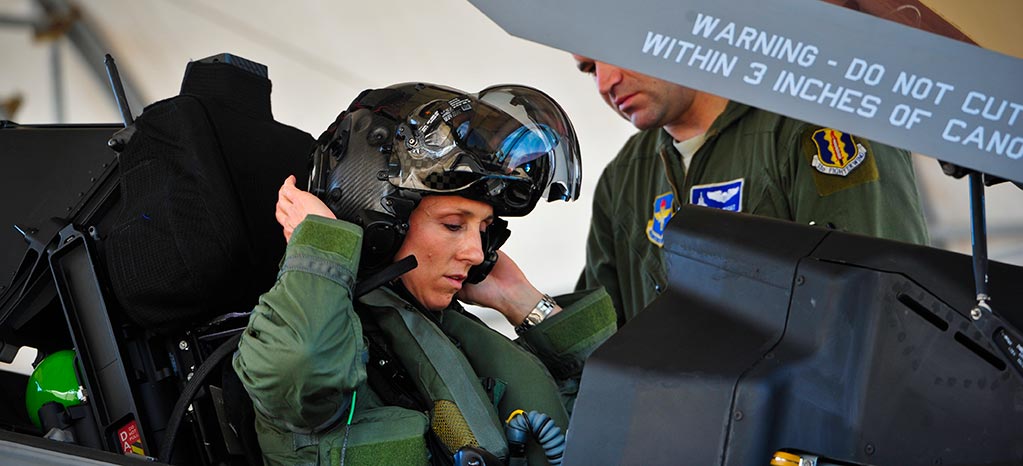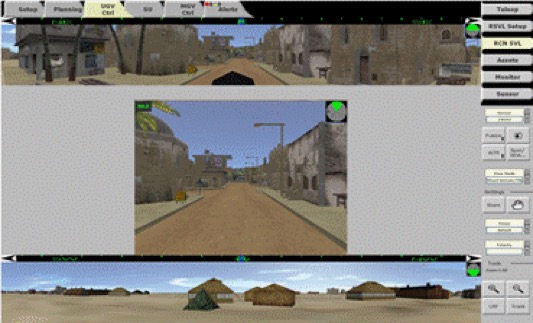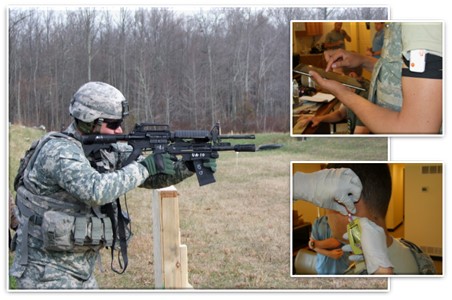Human Systems Engineering
The importance of human systems engineering is focusing on human needs while interacting with technology. DCS is a leading researcher across the DoD supporting key military capabilities and enabling strategic and tactical use of human/machine cooperation and neuroergonomics. Our research includes digital modeling of humans for cockpit/crew-station accommodation analysis and human body compression/flexibility modeling based upon environmental conditions encountered during maneuvers.

DCS subsidiary, Infoscitex (IST), conducts aerospace physiology research to evaluate and improve aircrew life support and safety. This includes investigations into helmet and head-mounted systems, protective and survival gear, cockpit or workstation designs, seating and restraint systems, personal safety devices, and protective gear. IST performs biodynamic testing to evaluate such equipment in extreme environments, such as crashes, high impulse vertical and horizontal accelerations, high altitudes, low oxygen, vibration, and ejection, as applicable to warfighter safety and protection. We conduct research into the performance of aircraft On-Board Oxygen Generating Systems (OBOGSs). Through modeling and anthropometry, we evaluate aircrew seat crashworthiness, occupant protection, potential head and neck injury risks, and the optimization of seating comfort.
 DCS conducts research in soldier interaction and interface with manned and unmanned ground combat vehicle systems. This includes HW/SW for video and data management and soldier control interface for 360-degree Local Situational Awareness (360LSA) sensor system, hostile fire detection system, and autonomous navigation system. The 360LSA sensor output, and other subsystem data is presented to the soldiers via an advanced Warfighter Machine Interface (WMI), which is designed to optimize the crew’s workloads and to maximize its safety. DCS develops simulations of the vehicles, sensors, and weapons, and autonomous navigation to facilitate study of various WMI design concepts and corresponding crew performance. DCS also integrates prototype subsystems, and WMI with vehicles to facilitate investigation in real vehicles in field environments. DCS has supported various US Army CCDC Ground Vehicle Systems Center (GVSC) experiments using these capabilities to gather performance metrics, including robotic system control through the WMI.
DCS conducts research in soldier interaction and interface with manned and unmanned ground combat vehicle systems. This includes HW/SW for video and data management and soldier control interface for 360-degree Local Situational Awareness (360LSA) sensor system, hostile fire detection system, and autonomous navigation system. The 360LSA sensor output, and other subsystem data is presented to the soldiers via an advanced Warfighter Machine Interface (WMI), which is designed to optimize the crew’s workloads and to maximize its safety. DCS develops simulations of the vehicles, sensors, and weapons, and autonomous navigation to facilitate study of various WMI design concepts and corresponding crew performance. DCS also integrates prototype subsystems, and WMI with vehicles to facilitate investigation in real vehicles in field environments. DCS has supported various US Army CCDC Ground Vehicle Systems Center (GVSC) experiments using these capabilities to gather performance metrics, including robotic system control through the WMI. DCS supports U.S. Army Combat Capabilities Development Command (CCDC) Army Research Laboratory (ARL) basic research and applied research programs featured Human Subjects Research. DCS scientists, engineers, and technicians work collaboratively with government representatives to plan and execute lines of research designed to enhance the human-system integration process. With the increasing DoD focus on introducing advanced technology to the battlespace, soldiers will increasingly interact with autonomous systems and intelligent agents. DCS works to ensure next-generation soldiers will be prepared for these challenges through ongoing research, featuring the use of AI/ML, human systems engineering, research and development, gaming and virtual world development, human physiological measurement, and big data analysis.
DCS supports U.S. Army Combat Capabilities Development Command (CCDC) Army Research Laboratory (ARL) basic research and applied research programs featured Human Subjects Research. DCS scientists, engineers, and technicians work collaboratively with government representatives to plan and execute lines of research designed to enhance the human-system integration process. With the increasing DoD focus on introducing advanced technology to the battlespace, soldiers will increasingly interact with autonomous systems and intelligent agents. DCS works to ensure next-generation soldiers will be prepared for these challenges through ongoing research, featuring the use of AI/ML, human systems engineering, research and development, gaming and virtual world development, human physiological measurement, and big data analysis.Contact Us
6909 Metro Park Drive, Suite 500
Alexandria VA 22310
P: 571-227-6000
info@dcscorp.com
Join Our Team
DCS has amazing, talented, and
technology-savvy people. We're growing
continuously and sustainably.
Check out our DCS Careers
© 2025 DCS Corporation, All Rights Reserved
Site Map
